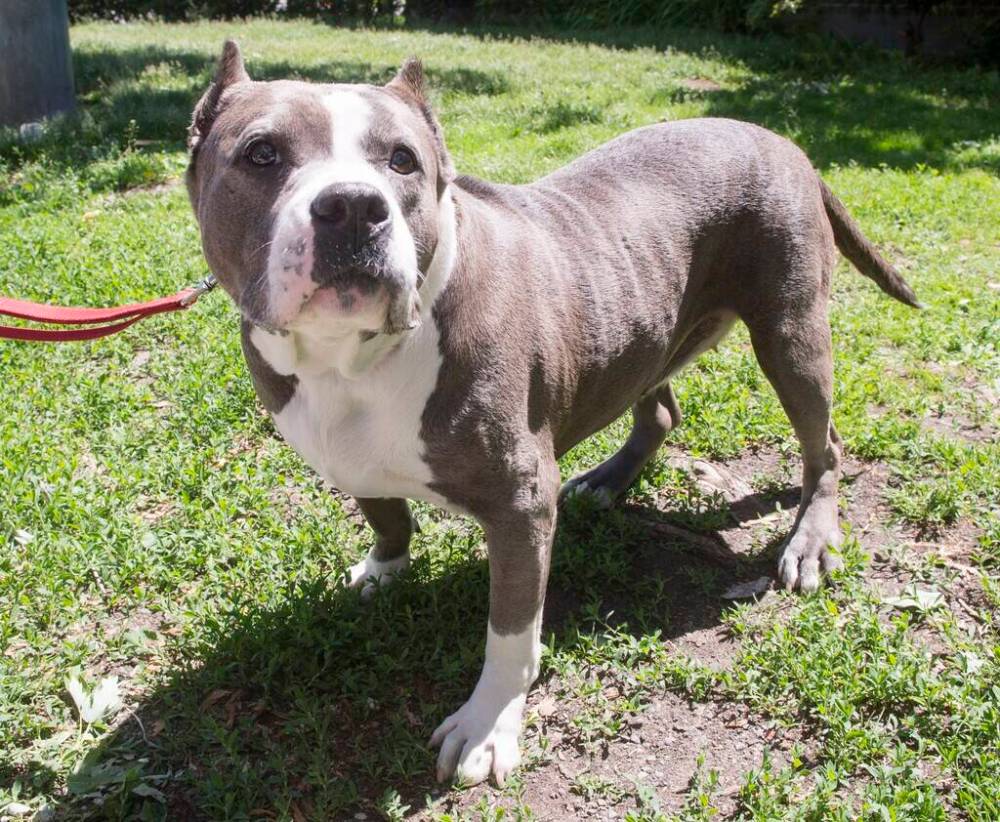Pet bylaw changes must emphasize enforcement
Read this article for free:
or
Already have an account? Log in here »
To continue reading, please subscribe:
Monthly Digital Subscription
$0 for the first 4 weeks*
- Enjoy unlimited reading on winnipegfreepress.com
- Read the E-Edition, our digital replica newspaper
- Access News Break, our award-winning app
- Play interactive puzzles
*No charge for 4 weeks then price increases to the regular rate of $19.00 plus GST every four weeks. Offer available to new and qualified returning subscribers only. Cancel any time.
Monthly Digital Subscription
$4.75/week*
- Enjoy unlimited reading on winnipegfreepress.com
- Read the E-Edition, our digital replica newspaper
- Access News Break, our award-winning app
- Play interactive puzzles
*Billed as $19 plus GST every four weeks. Cancel any time.
To continue reading, please subscribe:
Add Free Press access to your Brandon Sun subscription for only an additional
$1 for the first 4 weeks*
*Your next subscription payment will increase by $1.00 and you will be charged $16.99 plus GST for four weeks. After four weeks, your payment will increase to $23.99 plus GST every four weeks.
Read unlimited articles for free today:
or
Already have an account? Log in here »
Hey there, time traveller!
This article was published 12/04/2022 (1337 days ago), so information in it may no longer be current.
There’s no such thing as bad dogs, the old saying goes, only bad owners. That may be accurate, but it’s also incomplete. Given the current proposal to reverse Winnipeg’s ban on dangerous dogs, the maxim could be amended to read: there’s no such thing as bad dogs, only bad owners enabled by bad municipal policies.
In other words, while onus rests on the owners of dogs, additional onus must be on the city’s enforcement officials to identify bad owners at an early stage and either change their behaviour or curtail their dog ownership.
This intervention by city authorities must come as soon as dog owners present warning signs of negligence. It’s not enough to wait until a dog mauls someone and then prosecute the owner after the tragedy. If council is not prepared to fund swift and rigorous investigations of objectionable dog-owner behaviour before it becomes an emergency, then councillors should refuse to remove the current prohibition on breeds considered dangerous.

Council is currently considering advice from the Animal Services department to shift the focus away from considering dogs such as pit bulls inherently dangerous. It recommends allowing all breeds within the city and, instead, addresses “irresponsible pet owners.” The proposal would have the city approach owners under such criteria as a dog running at large more than twice, or biting another animal or human more than once.
The focus on working with owners is commendable, but the proposed bar for intervention is set too high. When a dog is running loose and attacks a passerby, there shouldn’t need to be a second attack for city officials to intervene and offer the dog owner frank guidance, and bylaw enforcement if the owner seems resistant to change.
Local authorities in England and Wales act earlier than their Winnipeg counterparts are proposing. They proceed promptly on reports of dogs that are off the leash, acting aggressively at passersby, or biting people or other animals.
Unlike the proposal in Winnipeg, they don’t wait for a second or third instance before contacting the owners and inviting them to avoid fines by agreeing to something called a Dog Behavior Contract, which commits the owner to conditions such as attending training classes, keeping the dog on a leash and properly fencing the property.
Owners who are unco-operative face measures that can include criminal prosecution and fines as large as C$4,000.
To match the early-intervention strategy that has been successful in some other countries, Winnipeg Animal Services could start by inviting the public to report owners whose pets are a nuisance to the quality of life of people in the vicinity. A dedicated hotline would surely garner plentiful accounts of aggressive dogs from neighbours and people who approach houses to deliver mail, newspapers or food.
The City of Winnipeg is often accused of being slow to act on citizens’ complaints on issues such as potholes, necessary tree pruning and poor snow clearing. Such tardy responses should be unacceptable when it comes to citizens’ reports of potentially dangerous dog behaviour, which could quickly escalate to someone getting hurt.
Animal Services should encourage reports from the public to compile a list of pet owners who warrant a prompt visit to avert future dog attacks. To do this thoroughly and rapidly, the department will likely require a budget boost from city council.
That’s the bottom line facing council as it prepares to vote on the issue on April 28. If it wants to welcome back the dog breeds that were banned in Winnipeg in 1990, the city must adequately fund the early intervention needed to educate and regulate irresponsible dog owners.











